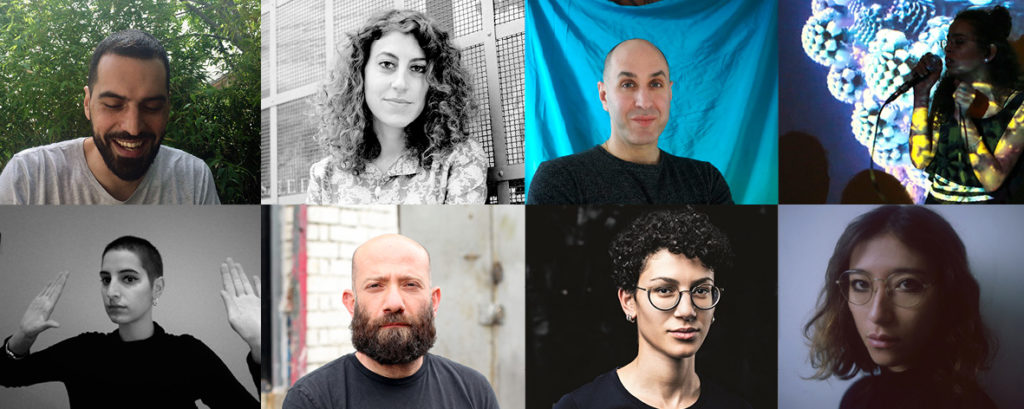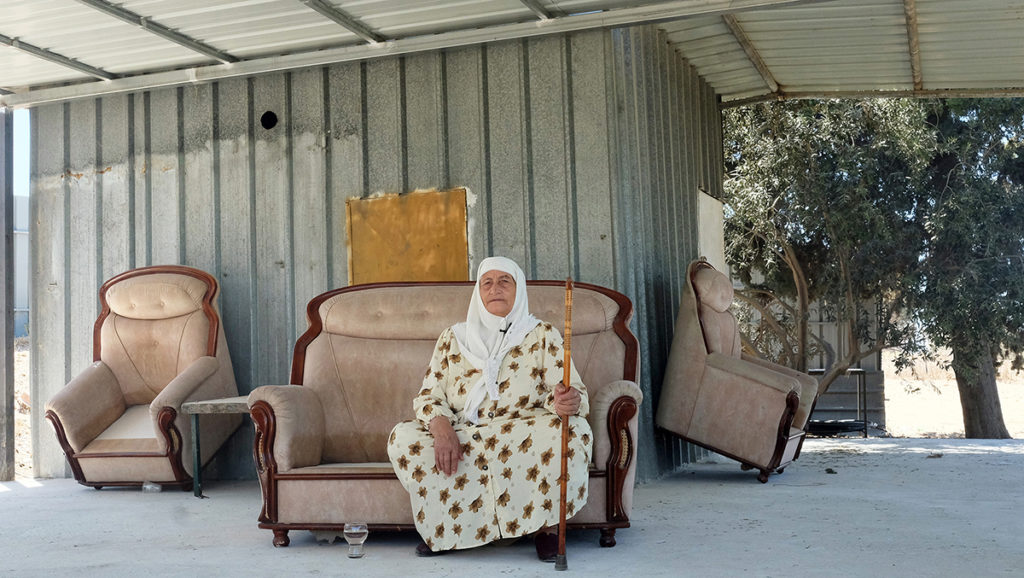It’s not easy for a young artist to make a name for herself. But it can be even more of a struggle for non-Western artists, like emerging Palestinian talent Dina Mimi, who lives and works in Jerusalem. It may be similarly challenging for Tunisian DJ and producer Deena Abdelwahed, a woman immersed in the male-dominated electronic music industry.
Mimi and Abdelwahed have been named alongside 6 other artists from the Arab world for major solo commissions over the next two years across Europe and the US, thanks to the nonprofit foundation Mophradat. The Brussels-based organisation’s so-called Consortium Commissions, now in its second run, aim to create opportunities for emerging Arab artists. As opposed to the more typical set-up—a juried award followed by a single show at a host museum—the pioneer platform lets international institutions foster their own relationships with the nominees by co-commissioning the works in tandem with Mophradat.
Alongside Mimi and Abdelwahed, this iteration’s selection includes Lebanese artist Haig Aivazian; Inas Halabi, an artist and filmmaker from Jerusalem; Joe Namy, an artist and composer based between Beirut and London; Lydia Ourahmane, an artist based in Algiers, Algeria; Maan Abu Taleb, a Palestinian writer and editor; and Makimakkuk, a Palestinian performance artist and musician. Their individual exhibitions will be slowly rolled out over the next two years, beginning in June. The program of exhibitions, performances, and musical events will be held at nine high-profile locations, including De Appel in Amsterdam, Haus der Kulturen der Welt in Berlin, Portikus in Frankfurt, and the Renaissance Society, Chicago. Each artist’s show travels to two institutions.
“What we are seeing is an art world that has become heavily commercialized,” explains Cairo-born, Athens-based curator Mai Abu ElDahab, who heads Mophradat. “Within institutions, private money is often dominant, which means that museum curators may not have access to more experimental projects. And, especially in Europe and North America, [where] racism is on the rise, artistic projects like these may have no other way to get in the door otherwise.”

Mophradat’s artists for the 2020-2022 Consortium Commissions. Courtesy Mophradat.
Since taking over Mophradat in 2015, Abu ElDahab says that the goal of the Consortium Commissions is to create a discourse with other curators in institutions throughout Europe and the US. “There is no denying that the center of the contemporary art context is in the West,” she says. “And the institutional situation is pretty dire in the Gulf. There are big museums, but they often require working directly with authoritarian regimes. We consider ourselves progressive, and so a lot of the projects we do would not find a home there.”
Palestinian artist Mimi, for instance, makes challenging work that explores human remains in the public sphere, and the normalization of death in public sites; her practice also explores martyrdom and self-immolation, specifically in Palestine. She will be showing at the Kunstenfestivaldesarts in Brussels in May 2021 and at Spielart in Munich, Germany in November of that year.
The participating museums are often directly involved in the jury process, including the naming of nominees and winners, and have curatorial control, together with the artist, over the execution of the resulting exhibition. Mophradat takes a supportive role. Monika Szewczyk, the director of De Appel, has chosen to work with Inas Halab and Lydia Ourahmane in 2021. She says the selection process itself has left an indelible mark on her.

Video still by Inas Halabi. Courtesy Mophradat.
“[The artists] have already began to make an impact on our institutional thinking. We consider how to engage Arab cultural vocabularies in all their plurality. And it has become clear already in this early stage how these incredible young women will inspire our public with their unique, worldly aesthetics,” says Szewczyk. At De Appel, Ourahmane will present , a project that follows a pilgrimage to Tassili N’ajjer, a vast desert plateau on the border of Algeria and Libya which houses over 15,000 ancient cave paintings and is one of the last places on earth to refuse militarization. Halabi’s film offers a surrealist view of the Druze town of Dalyet el Carmel.
Meanwhile, almost all of Mophradat’s previous slate of 2018–2020 commissions are almost completed, with a few remaining exhibitions on the horizon. The presentations of Egyptian-Polish filmmaker Egyptian-Polish filmmaker and Syrian artist Yazan Khalili both open at KW Institute for Contemporary Art in Berlin on March 14. Khalili’s commission then heads to the Museum of Contemporary Art in Toronto in the spring.
Source: Exhibition - news.artnet.com



